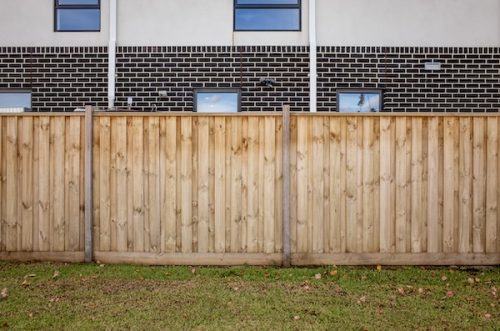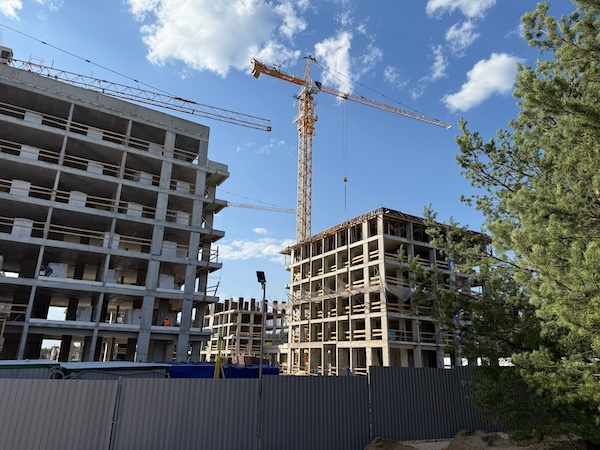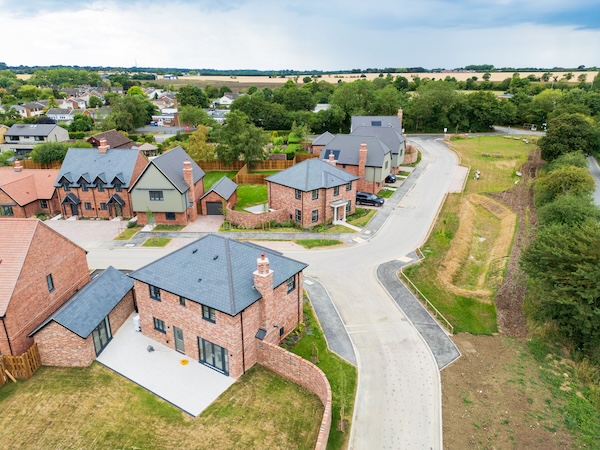
Property development can be one of the most rewarding investments in the construction sector, but it comes with a wide range of risks. Whether you are renovating a single house, converting a commercial building, or developing a large residential site, each type of project carries unique challenges. Having the right insurance in place is essential to protect your investment, satisfy lenders, and ensure that you are financially secure if something goes wrong.
Understanding which policies apply to your specific project can be confusing, especially when the work involves multiple contractors or mixed use. Below, we explore the most common types of property developments in the UK and explain what insurance is typically required for each one.
New Build Developments
New build projects involve constructing a property entirely from scratch. These developments range from single homes to large multi-unit residential sites or commercial buildings. Because everything is being built from the ground up, the financial exposure is high, and so are the risks.
The main hazards include damage to the works during construction, accidents on site, design errors, or delays caused by theft, fire, or bad weather. These issues can quickly lead to significant financial losses if not properly insured.
Essential insurance for new builds:
Contractors All Risk (CAR) Insurance: This is one of the most important policies for any new build. It covers damage to the structure under construction, including loss of materials, site theft, or accidental damage caused by storms, fire, or floods. It also protects the works until handover and completion.
Public and Employers’ Liability: Every contractor or developer needs liability cover. Public liability protects you if a member of the public is injured or their property is damaged during your work. Employers’ liability is a legal requirement if you employ staff or labour-only subcontractors, providing protection if an employee is injured on site.
Professional Indemnity Insurance: If your project involves design, planning, or technical advice, this cover is essential. It protects you against claims arising from professional mistakes, such as design flaws, specification errors, or incorrect advice given to clients or contractors.
Structural Warranty (Latent Defects Insurance): Once the building is complete, a structural warranty covers the property for hidden structural issues that may appear in the years after completion. These policies often run for ten to twelve years and are required by most mortgage lenders and future buyers.
Plant and Tools Insurance: Construction sites rely on expensive tools and machinery. This insurance covers loss or damage to owned and hired-in plant, protecting against theft or accidental damage while on site or in transit.
At Construction Insure, we often combine these into a single comprehensive policy to make the process simpler for developers, saving both time and money.
Renovation or Refurbishment Projects

Renovations and refurbishments are among the most common types of property development in the UK. They involve improving or upgrading an existing building rather than constructing something entirely new. This might mean modernising a dated property, converting a house into flats, or restoring a listed building.
Because you are working with an existing structure, there are additional risks that a new build doesn’t face. Older properties may have hidden structural issues, outdated wiring, or materials such as asbestos, which can complicate the work. There is also the risk of damaging the existing structure while carrying out the renovation.
Key insurance for renovations:
Renovation Insurance: This covers both the existing structure and the new works during renovation. It protects against damage caused by fire, flood, storm, or theft while construction is in progress.
Contract Works Insurance: This protects the value of the new work being carried out, including materials and partially completed works. It ensures you can recover costs if part of the project is damaged before completion.
Public and Employers’ Liability: Renovation projects often involve several trades working in confined spaces. These policies protect you from claims if someone is injured or property is damaged.
Non-Negligence Insurance (Party Wall Insurance): Many renovation projects take place in terraced or semi-detached properties, especially in London and other densely populated areas. This cover protects against damage to neighbouring buildings caused by your works, even when you were not negligent.
Unoccupied Property Insurance: Standard home insurance usually becomes invalid once major renovation begins. If a property is empty during construction, specialist unoccupied property insurance ensures that it remains protected.
Property Conversions
Conversions involve changing the use or layout of an existing building. Common examples include turning a barn into a house, converting a commercial office into flats, or transforming an old warehouse into mixed-use residential and retail space.
Conversions are increasingly popular under permitted development rights, but they come with complex planning and construction risks. The combination of an existing structure and new construction means you must cover both aspects properly.
Essential insurance for conversions:
Contractors All Risk or Contract Works Insurance: Protects the project during the construction phase, including the new elements being built or installed as part of the conversion.
Professional Indemnity Insurance: Especially important for architects, designers, or developers who oversee structural changes or design elements.
Structural Warranty (Latent Defects Cover): Most lenders require a ten-year warranty once the conversion is complete. This reassures future buyers and covers defects that may arise later.
Public Liability Insurance: Covers injury or property damage to third parties during the conversion process.
Environmental Liability: If the building previously had industrial or agricultural use, there may be a risk of contamination. Environmental liability cover can protect against costly clean-up expenses and related claims.
At Construction Insure, we specialise in arranging policies for conversion projects and can tailor a package that protects both the existing structure and the new work under one seamless policy.
Mixed-Use or Commercial Developments
 Mixed-use developments combine residential and commercial spaces, such as a block with shops or offices on the ground floor and flats above. Commercial developments may also include office buildings, warehouses, industrial parks, or retail premises.
Mixed-use developments combine residential and commercial spaces, such as a block with shops or offices on the ground floor and flats above. Commercial developments may also include office buildings, warehouses, industrial parks, or retail premises.
These projects are typically larger and involve higher levels of investment, multiple stakeholders, and stricter regulations. The financial risks are significant, and insurance needs to reflect that.
Insurance required for mixed-use and commercial developments:
Contractors All Risk Insurance: Covers the construction work, materials, and site against accidental damage or theft. It provides essential protection for large-scale developments where the cost of materials and labour is substantial.
Property Owners’ Liability: Once the building is in use, this policy protects you as the owner or developer against claims for injury or damage caused by the property.
Employers’ Liability and Public Liability: Required to protect staff, subcontractors, and members of the public who may be affected by the works or by the finished property.
Professional Indemnity Insurance: Important if your project involves architectural design, engineering, or project management services.
Business Interruption Cover: If a fire, flood, or other insured event delays completion or operation of the property, this cover compensates for lost income and ongoing expenses.
Project Insurance: For very large schemes, it can be cost-effective to arrange one policy that covers all contractors, subcontractors, and the employer under a single master policy.
Buy-to-Let and Build-to-Rent Developments
Buy-to-let and build-to-rent developments are designed specifically to generate rental income. These can range from a single house to an entire apartment block managed by an investment group. Insurance needs shift as the project moves from construction to occupation.
Insurance for buy-to-let and build-to-rent:
Contract Works Insurance (during build): Protects the structure while construction or refurbishment is underway.
Landlord Insurance (after completion): Once tenants move in, landlord insurance takes over. It covers the property, any fixtures or fittings, and your legal liability as a landlord.
Loss of Rent Cover: If the property becomes uninhabitable due to fire, flood, or another insured event, this cover replaces the lost rental income while repairs are made.
Legal Expenses Insurance: Helps with eviction processes or disputes with tenants.
Public Liability for Property Owners: Protects you if a tenant or visitor is injured because of a defect in the property.
A specialist broker like Construction Insure can ensure there is no gap between construction cover and landlord cover. This transition period is critical because insurers will not backdate cover once tenants move in.
Self-Build Projects
Self-builds are growing in popularity across the UK. They allow individuals to design and construct their own homes, either by managing the project themselves or hiring a main contractor. Because you are acting as the developer, project manager, and client, you carry full responsibility for insurance.
Insurance for self-builders:
Self-Build Insurance: A package designed specifically for owner-builders. It includes Contract Works, Public Liability, and Employers’ Liability.
Structural Warranty: Provides long-term protection against major structural defects and is required if you ever sell or remortgage.
Tools, Plant, and Machinery Insurance: Covers tools and hired equipment against theft and accidental damage.
Site Insurance: Protects the site itself against fire, theft, and storm damage.
Self-builders should always arrange insurance before any work starts on site. Construction Insure offers guidance and quotes tailored to first-time builders to ensure every aspect of the project is protected.
Property Flips and Short-Term Developments

A property flip involves buying, refurbishing, and selling a property for profit, often within a short timeframe. While these projects may seem lower risk than a full-scale development, they still require proper insurance. Accidents, delays, or property damage can quickly erode profit margins.
Insurance for property flippers:
Renovation Insurance: Protects the existing structure and any new work being carried out.
Public Liability: Covers injury or damage caused to others during the project.
Buildings Insurance: Ensures the property is protected while it is unoccupied or being renovated.
Tools and Equipment Cover: Protects your tools and materials while on site.
Developers’ Combined Policy: For repeat projects, a combined annual policy can be more efficient, covering multiple properties under one plan.
Why Tailored Cover Matters
Every development carries different risks. A small residential refurbishment will have very different exposures compared to a mixed-use tower or an office-to-residential conversion. That is why off-the-shelf policies often fall short. Insurers need detailed information about the project, the contractors involved, the site location, and the construction methods used.
A specialist construction insurance broker like Construction Insure will take the time to understand your project and structure a policy that meets all requirements. This ensures compliance with lenders, protects you from liability, and prevents costly gaps in cover.
Work with a Specialist Broker
Property development is unpredictable. Weather events, theft, design errors, and contract disputes can happen even on well-managed sites. The right insurance provides the safety net that keeps your project financially secure.
At Construction Insure, we work with developers, builders, and investors across the UK to source tailored cover for every stage of the construction process. Whether you are building new homes, renovating a listed building, or managing a commercial project, we can arrange the right policy to protect your investment.
Get in Touch Today to discuss your project.
.

